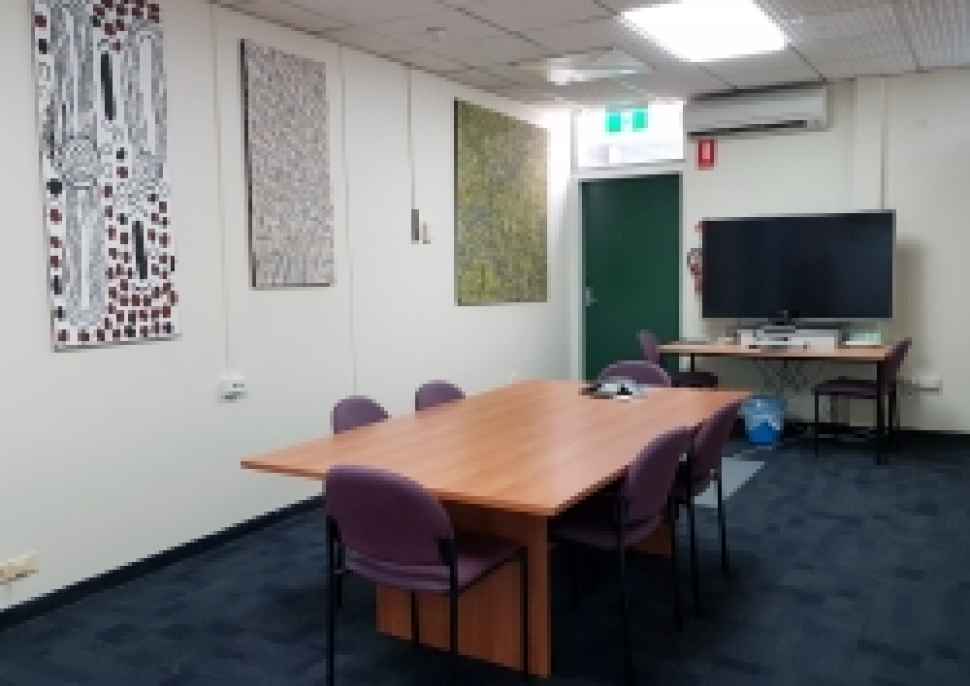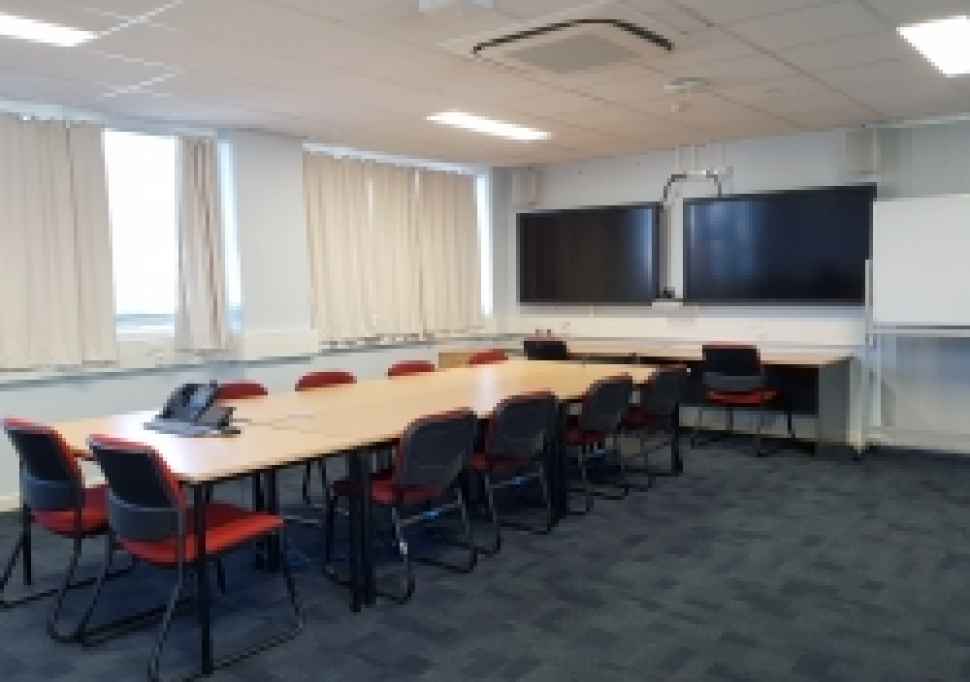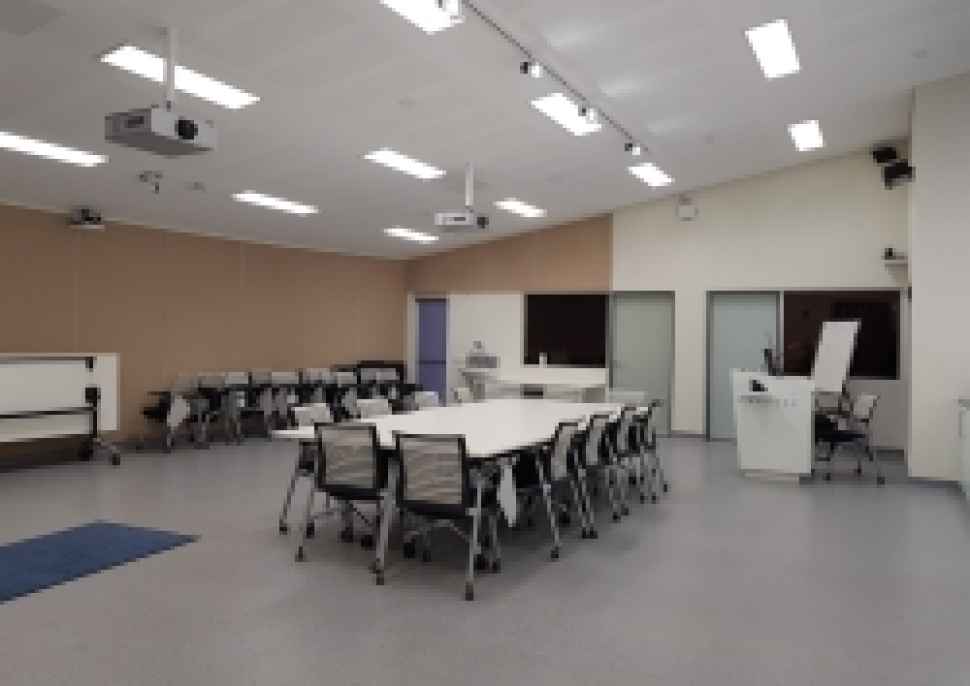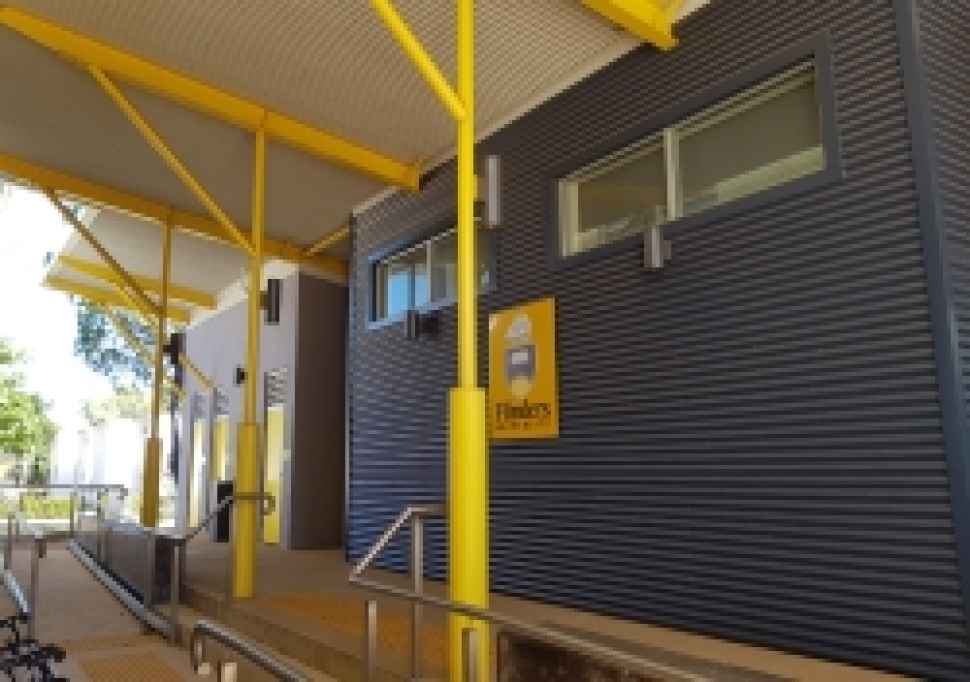Katherine
Flinders University, Katherine Campus acknowledges and recognizes the traditional custodians of the land on which we meet, the Jawoyn, Wardaman and Dagoman peoples. We pay our respects to elders past, present and future.
Facilities
The Katherine campus has offices and teaching and meeting facilities at O’Keefe House on the Katherine District Hospital grounds. Facilities include the following:

North Wing Meeting Room: Capacity 10

Courtyard Meeting Room: Capacity 20

Simulation Lab and teaching space: Capacity 40

Simulation Lab and teaching space external
Education
Orientation to Katherine Regional Cultures and Context
This one day course is specially designed for people living and working in the Katherine Region.
It introduces participants to the unique demographic, historical and environmental features of Katherine and the surround areas. It explores local Aboriginal cultures and how to improve cultural safety for Aboriginal clients. It also explores the social determinants of health and how racism works in Australian society.
This workshop is free for all students on placement and new graduates in the Katherine region and all are encouraged to attend. The workshop is also available to others new to the Katherine region for $200.
Please contact fnt.katherine@flinders.edu.au for dates and availability.
Remote Health Experience weekend
Around 80 students from the Flinders University Northern Territory Medical program (NTMP), Charles Darwin University (CDU) Pharmacy and nursing programs, Aboriginal Health Practitioner program from Bachelor institute and various allied health professionals from a number of universities attend a weekend at CDU rural campus. They attend sessions on remote health with perspectives from different health professions and a number of interactive stations with remote or emergency scenarios.
Trisha Maroney Memorial Prize
Trisha Maroney was a proud Wardaman woman from the Katherine region and an experienced speech pathologist with a passion for Aboriginal health and sharing her knowledge and skills with students.
Trish worked for Flinders NT in Katherine as an academic clinical supervisor for students. She also contributed to developing culturally safe practice skills in the next generation of clinicians, and promoted allied health recruitment and retention. Trish died in 2016 and is sorely missed in Katherine.
The Trisha Maroney Prize is awarded to a student on placement within the Katherine region that demonstrates the greatest in-depth self-reflection and improvement in their own cultural safe practice.
2019 Winner
Tayler Cosentino - Medical Student, Flinders University
Placement: Katherine District Hospital
In my first week in Katherine, I noticed a distinct difference in how people were spoken to about their illnesses. Doctors were sitting on the bed with patients. They spoke to them about their family and communities first. Then they explained simply the process that was happening in their bodies. Finally, they explained the ideal treatment plan…. If the patient didn’t want the treatment, it was negotiated so that we aimed for best practice with the patient, their community and culture at the centre of the picture.
2019 Highly Commended
Alison Taylor - Speech Pathology Student, Flinders University
2018 Winner
Kate Neville – Speech Pathology student, Flinders University
Placement: McFarlane Primary School
Mapping my family tree, provided insight into kinship which has supported me to further understand and be respectful of the roles of extended family members in caring for Aboriginal children.
2018 Highly Commended
Rachel Jones – Nursing student, Charles Darwin University
Placement: Katherine District Hospital
The kinship system was demonstrated in a simplified form as part of the learning materials. After studying it for a few minutes, I realised that in that worldview, each Indigenous person had a formal relationship with every other Indigenous person in their family, in their community, in more distant communities, and in Indigenous communities throughout Australia.
Tessa Hood – Medical student, University of Wollongong
Placement: Katherine District Hospital
In my first week in Katherine, I noticed a distinct difference in how people were spoken to about their illnesses. Doctors were sitting on the bed with patients. They spoke to them about their family and communities first. Then they explained simply the process that was happening in their bodies. Finally, they explained the ideal treatment plan…. If the patient didn’t want the treatment, it was negotiated so that we aimed for best practice with the patient, their community and culture at the centre of the picture.
Michaiah Cowley – Midwifery student, University of Technology Sydney
Placement: Katherine District Hospital
Cultural safety is largely about positioning the person in care at the centre of our services. I have learnt from my experiences in Katherine that it is important not to make any assumptions about what an individual may want in their care. Asking appropriate and well thought out questions, as well as reading verbal and nonverbal cues have become important practices for me to focus on to ensure I am comprehending the dynamics of each family and woman’s personality. It was a great opportunity for me to practice and gain more experience in observing and understanding Aboriginal families.
Placements
Katherine campus organises a variety of placements for health professionals, which are managed through Remote and Rural Interprofessional Placement Learning NT (RIPPL NT).
Research
Katherine Campus aims to support local organisations, students and individuals with research and evaluations within the Katherine region as well as contribute to national research of remote health services.
Staff
Director – Katherine Campus
Associate Professor Sue Lenthall
Phone: +61 8 8971 9642
Mobile: 0419 826 761
Email: Sue.Lenthall@flinders.edu.au
Lecturer in Aboriginal Health
Maddy Bower
Phone: +61 8 8971 9643
Email: maddy.bower@flinders.edu.au
Campus Administrator
Maria Bower
Phone: +61 8 8971 9640
Email: maria.bower@flinders.edu.au
![]()
Sturt Rd, Bedford Park
South Australia 5042
South Australia | Northern Territory
Global | Online
CRICOS Provider: 00114A TEQSA Provider ID: PRV12097 TEQSA category: Australian University








